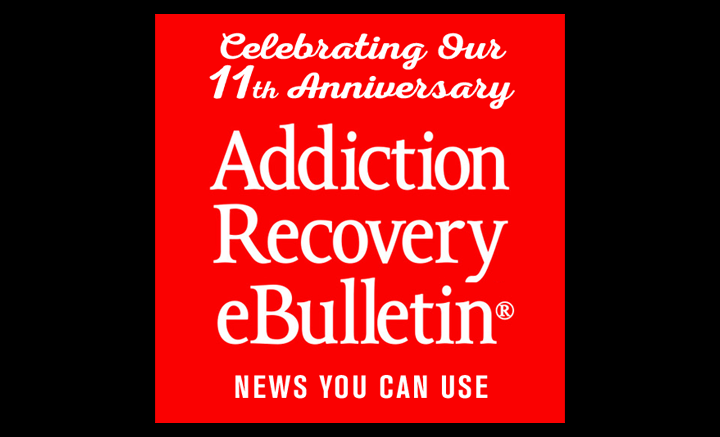Executive Corner
May 28, 2017
The Executive Corner is a new weekly feature of the Addiction/Recovery eBulletin. We send our participants forty questions and ask them to choose twenty they would like to answer. It includes a short profile and a link to their website. We hope you enjoy it.
____________________
PROFILE
Richard “Rich” Jones is an experienced strategist, non-profit executive, and creative catalyst with a passion for program and policy development, human resources, building partnerships and exploring systems innovation to drive social impact across multiple domains including mental health, substance abuse, co-occurring, & intellectual disabilities. He is a Senior Healthcare/non-profit Director with over 16 year’s management experience and has provided leadership and administration to start up non-profit organizations nationally and regionally.
As the Executive Director of Faces And Voices Of Recovery (FAVOR) Greenville, an exceptionally innovative and unique program that aggressively attacks the problem of addiction and other behavioral health issues; FAVOR Greenville is focused on fundamentally changing the way that recovery support is provided. Rich actively looks for opportunities to have on-going and transparent conversations around mental health, substance abuse, co-occurring, & intellectual disabilities issues, situations, and challenges facing our community. His passion and dedication to mental health and substance use disorder help fuel his community engagement with frequent knowledge exchanges through speaking and events; he also serves as an advisor for several local, regional, and national health-related organizations.
Richard L. “Rich” Jones, MA, MBA, LCAS, CCS, CCDP, CAI
Executive Director
FAVOR Greenville
Learn more about Faces and Voices of Recovery at
FacesandVoicesofRecovery.org
_____________________
Q: What was your DOC and when did you discontinue its use?
A: My drug of choice was alcohol but my drug of destruction was opioid-based pain medication. I am in long-term recovery as of 2001.
Q: At which of the schools you attended did you learn the most? Why?
A: I attended Graduate School for an MA in Sociology with a concentration on Addiction Studies. This is where I learned the most. I had great mentors. The Indiana University of Pennsylvania was home, at that time, to several leaders in the addiction studies field.
A close second is the University of Scranton, where I received my MBA with concentration in Healthcare Management. This has been essential to my success in starting business and launching successful non-profits/business units.
Q: Which film have you watched the most?
A: The Bourne Trilogy
Q: Do you believe leaders are made or born?
A: Both. I believe a leader can be made but it’s much easier if they are born with certain character traits.
Q: If you ever retire, would you prefer to live by the ocean, lake, river, or mountaintop, or penthouse?
A: Ocean
Q: What is your biggest or littlest pet peeve?
A: Biggest pet peeve…lack of innovation in the addiction treatment space. Why is every program fundamentally the same?
Q: What is your current hobby?
A: Fundamentally changing the way recovery services are delivered.
Q: If you had an extra million dollars, which charity would you donate it to?
A: That’s easy. FAVOR (Face And Voices Of Recovery) in Greenville.
Q: What is your favorite non-fiction book genre?
A: Business; entrepreneurship
Q: Who is your favorite musical artist?
A: Tupac
Q: What is your favorite school of thought as related to psychology?
A: Humanistic; Rogerian. By extension: Motivational Interviewing is the greatest approach in the addiction treatment arena.
Q: What is your favorite sport to watch? To play?
A: Watch Football, play basketball.
Q: Do you have any children? Grandchildren?
A: I have 7 kids and 2 grandchildren. Kids range in age from 4 to 24. Same woman. I really love my wife…
Q: Do you take work home with you?
A: Yes. I have been labeled a work-aholic. I’m not sure if I agree with that or if I believe that is a bad thing. I love what I do. It’s a mission and worthy of obsessive work.
Q: What is the best piece of advice you’ve been given?
A: Nobody cares about excuses. Fix it.
Q: Do you think addiction is an illness, a disease, a choice, or a wicked twist of fate?
A: Disease—a complex, biopsychosocial disease that falls along a wide spectrum. There is nothing simple about addiction.
Q: What are five things you always carry with you?
A: My phone, wallet, iPad, keys and a really good attitude.
Q: PC or Mac?
A: PC
Q: What’s the greatest risk you’ve ever taken?
A: I quit a good paying stable job in a very stable space in the industry to start an unknown non-profit in a domain that has no reimbursement structure. I moved from Pennsylvania to South Carolina to do so. Took a 50% pay cut. Moved my 6 kids. Owned 2 homes. Went broke and nearly destroyed my family. To start a one-of-a-kind innovative peer recovery model. Fortunately, we have stabilized the program and found sustainable funding. It’s a happy ending. But it was ugly.



